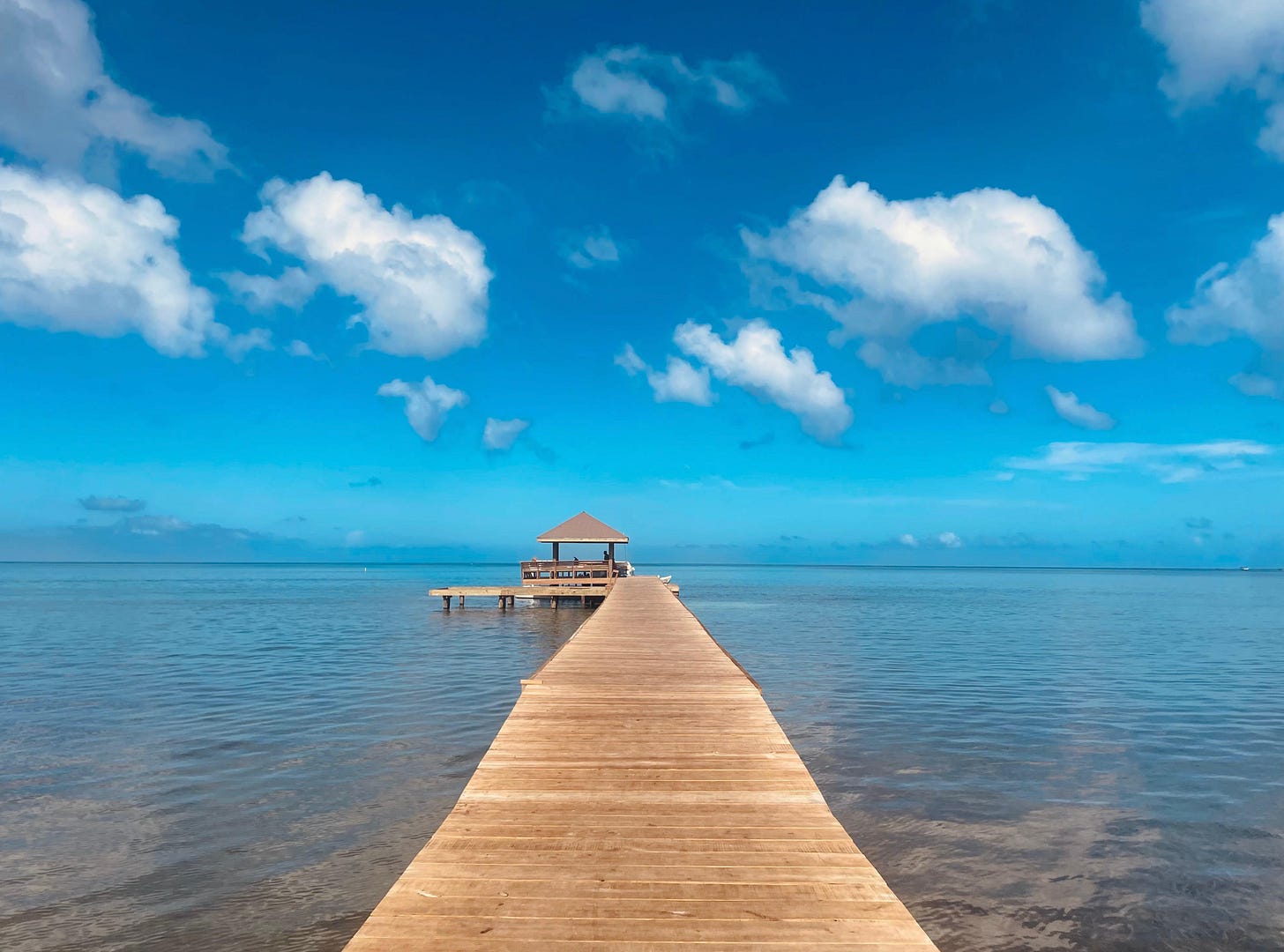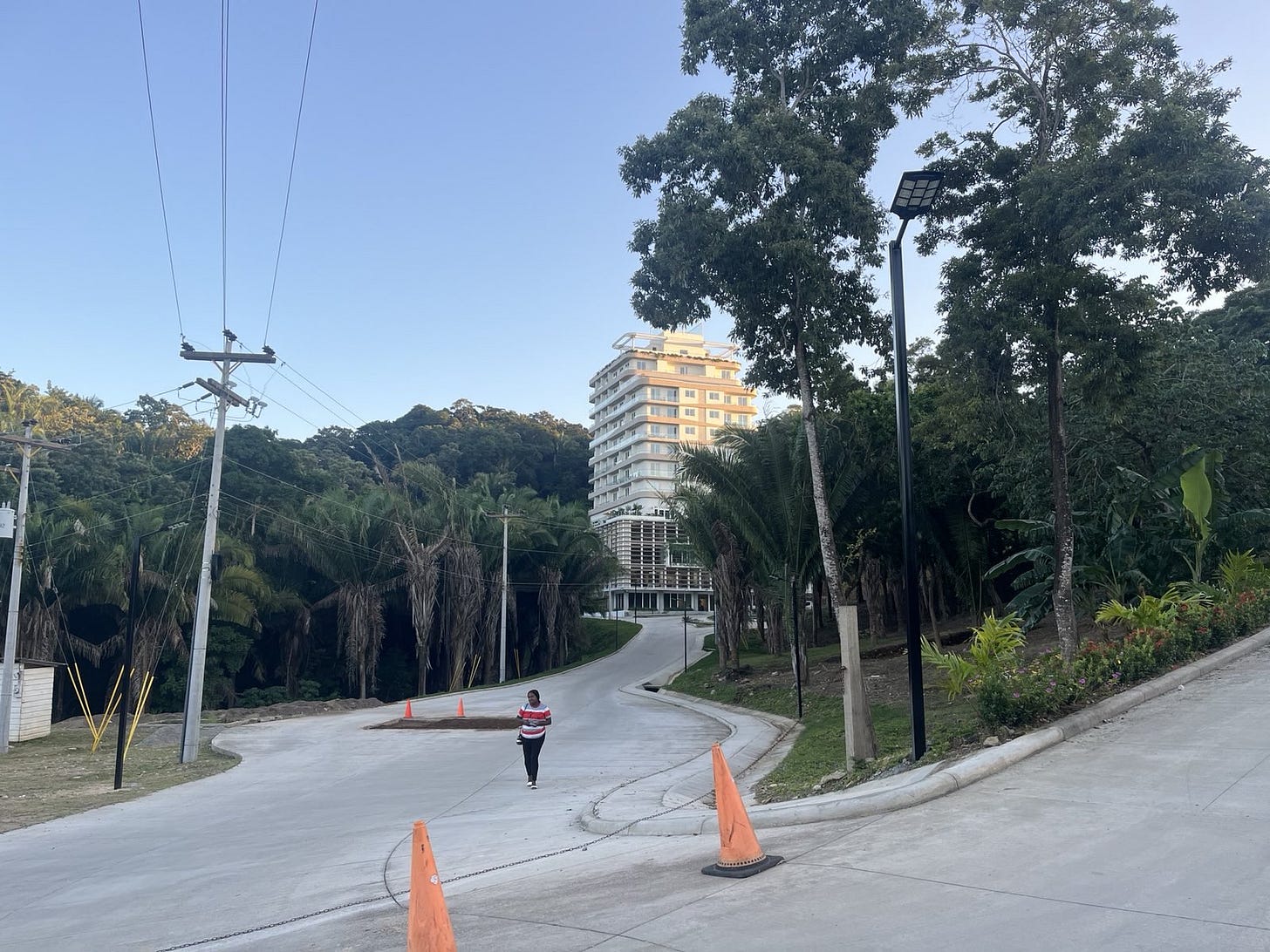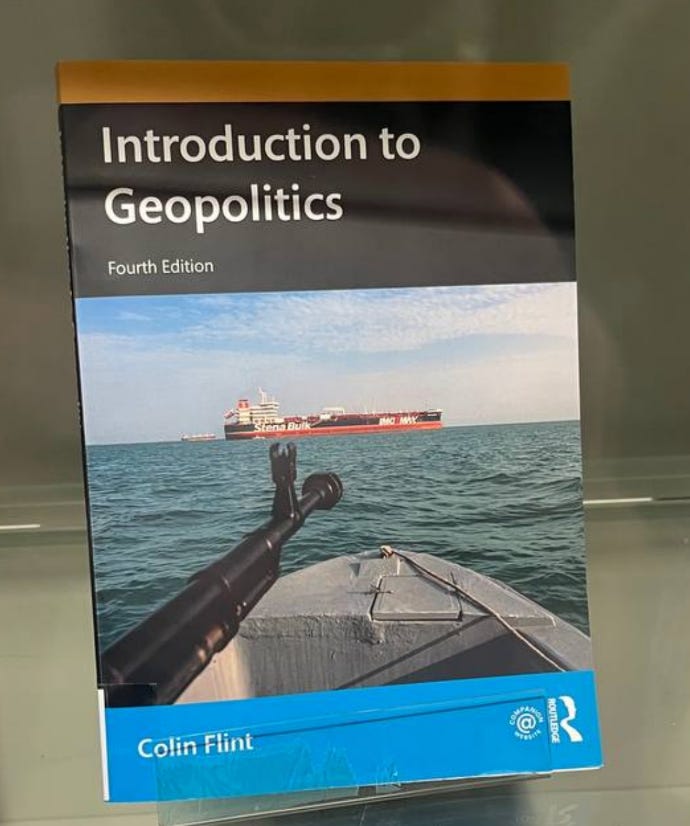To Infinita and Beyond
Weekly freedom news, 2025's first edition
Welcome to a new year of weekly freedom news, where we venture out to discover new states in contested territories.
“Where would you like to live? In a state of conflict or a conflicted state.” Christopher Hitchens
I’ve arrived on the island of Roatán, Honduras, to explore Próspera ZEDE and its host country, with which is in a state of conflict indeed.
So far it feels like being in a nice resort, where for some reason you bump into fascinating people. For instance, I bumped into David Friedman on a beach walk a few days ago, and he was kind enough to answer some questions I had in an interview that we recorded later.
As with the interview, I will also be going around Próspera and the rest of the island of Roatán, doing a little vlogging on what it is like to live here, and what other people think it is like to live here, and what the islanders think about people living here. Stay tuned as I figure out how to edit videos.
Top Stories
Vitalia rebrands to Infinita to signify its own longevity
Company works on vessels that allow you to live under the ocean, paving the way for Deep Seasteading
Icesteading, a forgotten technique, may also provide options
You can now do what you want in crypto as the president launches a scammy memecoin
Vitalia rebrands to Infinita

Vitalia, the “pop-up city” (fancy name for a long gathering) in Próspera ZEDE that desires to (allow you to) do research on living healthier for longer, goes permanent and rebrands itself to Infinita.
Biotechnology and longevity research is a good attractor for people to come all the way to Próspera ZEDE, because ultimately, no matter how low the taxes are or the governmental structure interesting, you need a strong fundamental reason to move to a remote island in the Caribbean. To have ambitions that can only be realised there may be just that.
Deep Seasteading
The company Deep is “making humans aquatic”, by building deep sea vessels for people to live under the surface of the ocean.
The goal is to have a permanent human presence in the ocean by 2030.
The company nor the article mention anything about politics, as these vessels are supposed to be used for marine research. But it may also have implications for where humans can live, with possible new political structures.
One issue with seasteading is that, in international waters, you open yourself up to be robbed by pirates. It would be very fortunate for you then if you are at the bottom of the ocean, where it’s hard for pirates to go to if they even knew where you were.
Icesteading
Instead of living under the ocean we may also live on giant blocks of ice, as Roko (from the infamous Basilisk), details in an article.
The idea apparently dates back to 1942, as British inventor Geoffrey Pyke tried to work out how to make aircraft carriers from ice in a project called Project Habakkuk.
You can now do whatever you want in crypto
Trump launched his own memecoin at his “Crypto Ball”.
He owns 80%+ of the supply, and has already been selling.
People are debating whether this is good or bad “for crypto”.
My take, or rather hope, is that it’s good because while Trump may be a grifter, he’s essentially telling you can do whatever you want in crypto now, and that naturally includes legitimate things.
Hopefully this paves the way for people to set up companies that do legitimate things. Here are some guesses for real applications:
NFTs that actually refer to a real-world property, validated by registered businesses.
Undercollateralized lending within crypto.
Logging hashes of legitimate videos released by public figures on-chain, so as to avoid deep fake hoodwinkery.
(Private) stablecoins without blacklisting capability. Currently USDC and USDT can blacklist addresses. You can already hide your USDC on, for instance, the Iron Fish network. You then however still run the risk of being blacklisted after there is evidence that you have used an illegal hiding mechanism. I have it on good authority that Zcash does not want to work with USDC for this reason.
All of the things crypto already provides but isn’t officially accessible to people, such as Polymarket to Americans.
Other stories
From a talk here at Infinita, I found out about the Longevity World Cup, where people can soon compete on age reductions by improving their biomarkers, turning longevity into a game.
Dr. Vera Kichanova, from the Free Cities Foundation, wrote a paper suggesting that Britain should adopt more self-governing cities.
“Healthy competition between such cities would help identify the most effective solutions, which could then be scaled and replicated nationwide.”
Liberland’s President Jedlička will attend Davos to attend events on using blockchain in governance.
Interesting media
The recently deceased Jimmy Carter was apparently responsible for numerous de-regulations on the airline, railroad, financial, and other sectors.
For instance, the Airline Deregulation Act of 1978 allowed airlines to set their own routes and fares, leading to increased competition and lower prices for consumers.



